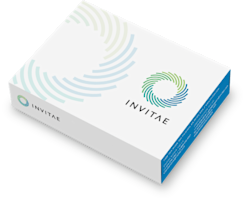
Invitae Brugada Syndrome Test
Test code: 02212 •
Test description
This test is for individuals with a clinical diagnosis of Brugada syndrome. The panel includes up to 20 genes associated with Brugada syndrome or other inherited arrhythmia conditions that may present with clinical features similar to Brugada syndrome.
Individuals with clinical symptoms of Brugada syndrome may benefit from diagnostic genetic testing to establish or confirm diagnosis, clarify risks, or inform management. Asymptomatic members of a family with a known pathogenic variant may also benefit by avoiding activities and medications that can trigger symptoms.
Ordering information
Turnaround time:
10–21 calendar days (14 days on average)New York approved:
YesPreferred specimen:
3mL whole blood in a purple-top EDTA tube (K2EDTA or K3EDTA)Alternate specimens:
Saliva, buccal swab, and gDNA are also accepted.Learn more about specimen requirementsRequest a specimen collection kitClinical description and sensitivity
Clinical description:
Brugada syndrome is a cardiac condition that primarily affects the electrical system of the heart. Brugada syndrome is defined by characteristic ST-segment elevations on an electrocardiogram (ECG). These ST-segment elevations are seen in certain areas of the ECG (leads V1-V3). Individuals with Brugada syndrome may have symptoms related to arrhythmia, such as dizziness, syncope (fainting), or cardiac arrest. Symptoms related to Brugada syndrome can occur at rest but can also be triggered by fever, dehydration/electrolyte imbalance, or the use of certain medications.
Assay information
Invitae is a College of American Pathologists (CAP)-accredited and Clinical Laboratory Improvement Amendments (CLIA)-certified clinical diagnostic laboratory performing full-gene sequencing and deletion/duplication analysis using next-generation sequencing technology (NGS).
Our sequence analysis covers clinically important regions of each gene, including coding exons and 10 to 20 base pairs of adjacent intronic sequence on either side of the coding exons in the transcript listed below, depending on the specific gene or test. In addition, the analysis covers select non-coding variants. Any variants that fall outside these regions are not analyzed. Any limitations in the analysis of these genes will be listed on the report. Contact client services with any questions.
Based on validation study results, this assay achieves >99% analytical sensitivity and specificity for single nucleotide variants, insertions and deletions <15bp in length, and exon-level deletions and duplications. Invitae's methods also detect insertions and deletions larger than 15bp but smaller than a full exon but sensitivity for these may be marginally reduced. Invitae’s deletion/duplication analysis determines copy number at a single exon resolution at virtually all targeted exons. However, in rare situations, single-exon copy number events may not be analyzed due to inherent sequence properties or isolated reduction in data quality. Certain types of variants, such as structural rearrangements (e.g. inversions, gene conversion events, translocations, etc.) or variants embedded in sequence with complex architecture (e.g. short tandem repeats or segmental duplications), may not be detected. Additionally, it may not be possible to fully resolve certain details about variants, such as mosaicism, phasing, or mapping ambiguity. Unless explicitly guaranteed, sequence changes in the promoter, non-coding exons, and other non-coding regions are not covered by this assay. Please consult the test definition on our website for details regarding regions or types of variants that are covered or excluded for this test. This report reflects the analysis of an extracted genomic DNA sample. In very rare cases, (circulating hematolymphoid neoplasm, bone marrow transplant, recent blood transfusion) the analyzed DNA may not represent the patient's constitutional genome.
You can customize this test by clicking genes to remove them.
Primary panel
Preliminary-evidence genes currently have early evidence of a clinical association with the specific disease covered by this test. Some clinicians may wish to include genes which do not currently have a definitive clinical association, but which may prove to be clinically significant in the future. These genes can be added at no additional charge. Visit our "(external) Preliminary-evidence genes":/preliminary-evidence/ page to learn more.
Question about billing?
Find answers